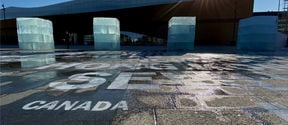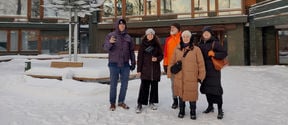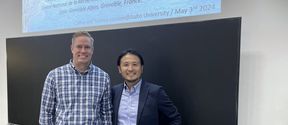Digital twin of electric motors enhances industrial processes
The use of electric motors and frequency converters in industry is growing dramatically, while the industry is undergoing a digital revolution in which increasingly bigger equipment and system entities are being connected to each other.
‘The development of simulation and modelling increases the use of digital twins in industry. For example, the digital twin of an electric motor is a simulation and data model that contains all the interfaces used for connecting the device to other systems in the digital world,’ says Jari Jäppinen, Technology Manager at ABB Motors & Generators unit.
Today, electric motor design is strongly steered by energy and material efficiency. At the same time, efforts are being made to improve the energy efficiency of complete industrial processes. Digital twins play a key role in this.
ABB relies on Aalto University's expertise in the development of computing tools for electric drives.
‘In the design work, we use the computing tools and software we have developed in collaboration with Aalto University. We engage in co-operation, for example, through master's theses and doctoral dissertations', Jäppinen says.
Robust investments in product development
In Finland, there are hundreds of experts working in the product development of ABB's electrical drives. Collaboration with Aalto brings a new perspective to the work. Future products and services are being built together with students and new employees.
‘Ever since Gottfried Strömberg's days, our engine manufacturing plant in Pitäjänmäki has been able to renew itself at the right time. At the same time, it has been offering great career challenges both in Finland and abroad. There is no end to this development in sight', Jäppinen explains.
‘We can certainly expect the need for the development of technologies and new products and services to continue to remain high.’
Text: Marjukka Puolakka
For further information, please contact:
- Published:
- Updated:
Read more news

Workshop day for teachers: 360° environments and podcasts
On Tuesday 4.6. a workshop day consisting of 360° environment creation and podcast production provides a way to get to know these media in practice. Feel free to join both workshops or one of them according to your time and interest.
Aalto ARTS Summer School explores the significance of water through the lens of art
The theme of School of Arts, Design and Architecture’s Summer School this year is water, and its significance is explored in a multidisciplinary way through the perspectives of art, film and digital.
Preserving intangible cultural heritage through immersive XR experiences
Aalto University’s Department of Art and Media is coordinating a European wide project on preserving intangible cultural heritage and using it to address societal challenges with the help of immersive XR environments.